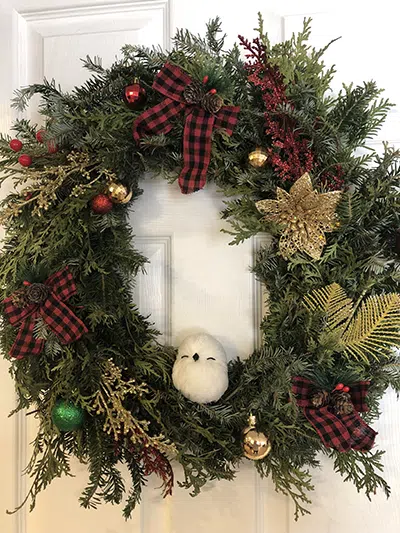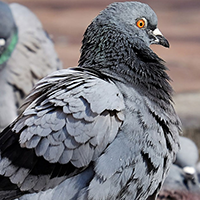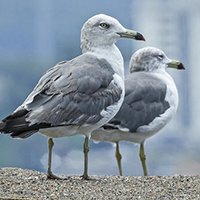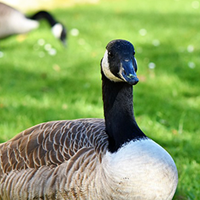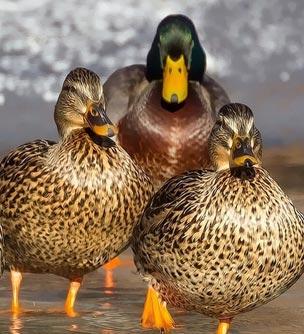 Ducks belong to the sub family Anatinae. Not only is this grouping the largest group of waterfowl, it is also the most diverse. The characteristics generally held in common by ducks when compared to geese and swans are the small body size, shorter necks, narrower wings which are more pointed, and wing beats which are more rapid.
Ducks belong to the sub family Anatinae. Not only is this grouping the largest group of waterfowl, it is also the most diverse. The characteristics generally held in common by ducks when compared to geese and swans are the small body size, shorter necks, narrower wings which are more pointed, and wing beats which are more rapid.
About Ducks
There are nearly 30 different varieties of ducks in Canada alone. Ducks are found on all continents, except Antarctica. They are highly adaptable and exceedingly well equipped to survive our harsh northern winters.
Duck Appearance
The males (drakes) and females (hens) are often colored differently, with the male having the brighter plumage of the two. There are two body molts per molting cycle. The most significant is the eclipse which is the cycle that takes place during the end of the breeding season that results in males and females looking almost identical. Another characteristic is the speculum which is produced by the bright metallic feathering of the secondary feathers. There are also voice differences between the male and the female.
Exceptions to that rule are solid colour ducks, such as Pekin and Cayuga Ducks. Both of these are domestically raised, heavy meat birds and do not fly.
Duck Breeding
Unlike Canada geese or swans, ducks do not mate for life and set out to find a new partner each year. Duck mating rituals of various species can be quite a spectacle, often involving fancy dances, calls, and colorful feather displays as love struck drakes compete to win over discerning females.
The female will lay and incubate 7-15 eggs on average and take on the duties of child rearing. Only a small percentage of eggs will actually hatch and half of the hatchlings will likely not survive.
Duck Control
Control solutions include Nest removal and physical relocation of babies and mother, falconry, chasing with dogs, pyrotechnics, and exclusion netting. Pond wiring is also an option, as long as the size of the pond is manageable. Nearly all of our Geese Control Solutions can also be used for ducks.
Duck Damage
Adult waterfowl have an omnivorous diet and in their search for food, especially in larger numbers, tend to spoil lawns, sports fields, crops, golf courses, city parks, etc., from their feeding, trampling, and fouling. Even a small flock of ducks can contaminate a small pond or pool in no time at all. Nesting debris in backyards and oodles of excrement will make a mess of any green space and create rather unsanitary conditions, leading to potential health hazards.
More on ducks: How long do Ducks live? | Caring for ophaned duckling









